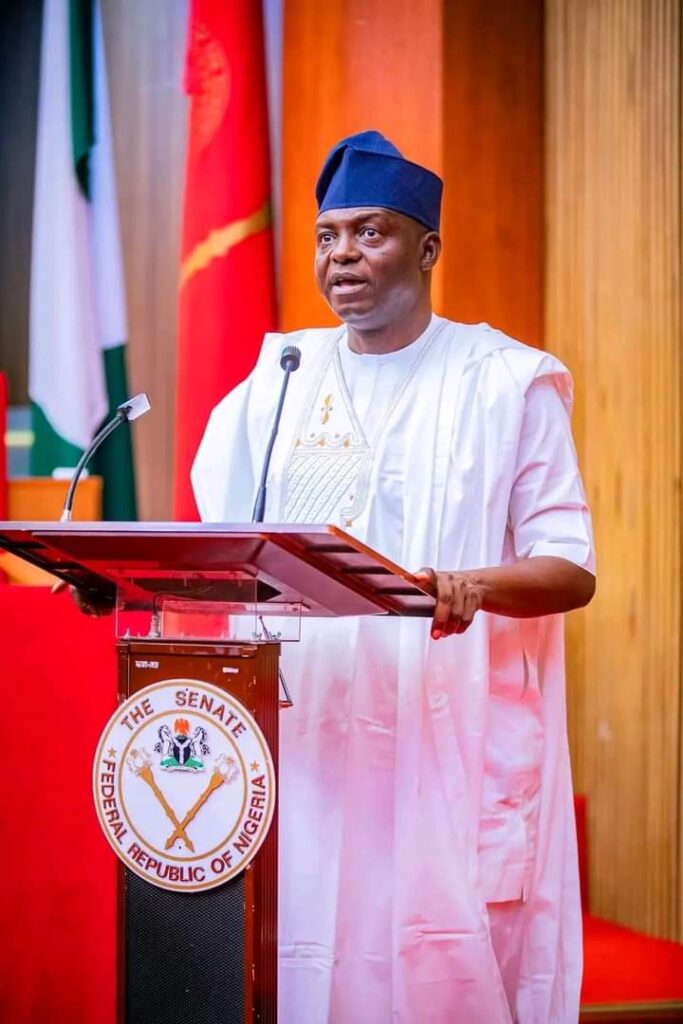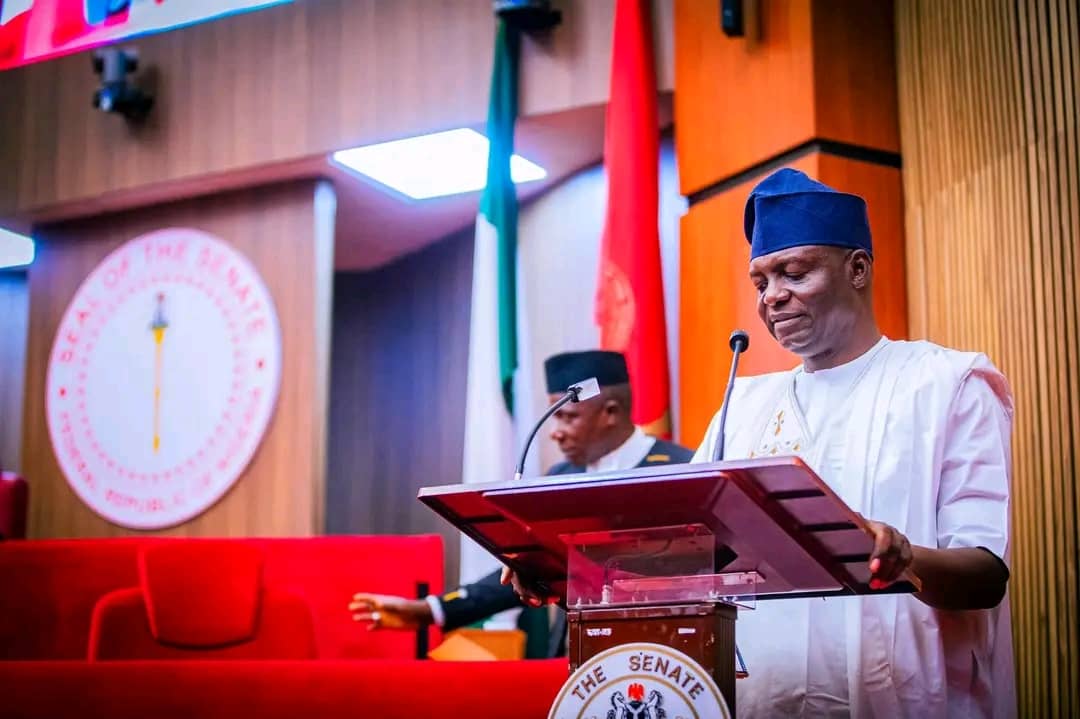D M Long’gul writes from Jos, Central Nigeria.
Nentawe Yilwatda, Nigeria’s Minister for Humanitarian Affairs and Poverty Reduction, appointed by President Bola Tinubu and confirmed by the Nigerian Senate yesterday, 31/10/2024, is an esteemed academic who embodies a vision of leadership that is becoming increasingly uncommon in modern Nigerian politics. Nentawe ran for the gubernatorial position of Plateau State during Nigeria’s 2023 general elections but was defeated by Governor Caleb Mutfwang in a campaign marked by significant religious propaganda. As a university professor, Nentawe has a personality that resonates with me; in the wake of the gubernatorial campaigns he consistently encouraged his followers to adhere to the agenda he refers to as ACESS, rather than engaging in divisive propaganda, particularly concerning religious sentiments. He holds a leadership philosophy hinged on peace and respect for all, and I previously wrote an essay about him entitled “The Profound Stillness of Prof. Nentawe Yilwatda.” ( see : The Profound Stillness of Prof. Nentawe Yilwatda | View Point Nigeria) in the write-up, I painted his posture after the elections through the court cases at tribunal to the court of appeal, especially using my data from his Facebook page I summarized it thus: “It is here that 80% of his interests are dedicated to the beautiful game of football, while 10% consists of motivational speeches from esteemed leaders of thought or his own personal words of encouragement bestowed upon others. The remaining 10% encompasses a medley of random wishes and updates on his political endeavors.” It’s about one year now, and it seem the philosopher leader, Nentawe, actually saw his future- a space in Nigeria’s National politics.
With a strong foundation in academia, particularly as a professor of engineering, Yilwatda vows to employ a data-driven and analytical methodology in governance,
“Running the ministry on “Data base” information will be one among the best innovative approach to tackling the corruption bedevilled ministry and usher us into a new dispensation of transparency” …… Professor Nentawe Yilwada respond to Nigeria’s senate during his screening.

“Running the ministry on “Data base” information will be one among the best innovative approach to tackling the corruption bedeviled ministry and usher us into a new dispensation of transparency” ….
Showcasing a deep comprehension of systemic challenges and a dedication to creative solutions. His progressive ideology is anchored in evidence-based policymaking, the integration of technology, and the empowerment of youth, all of which he sees as vital for Nigeria’s sustainable development. In light of Nigeria’s struggles with economic volatility, insecurity, and deteriorating infrastructure. And of course, it’s not just me who agrees with the esteemed gentleman’s assertion, but also many others like Sen. Ned Nwoko, who has clearly expressed in an interview on Channels TV that he holds Professor Nentawe Yilwatda in high regard. He asserts that Dr. Nentawe proposed “a forward-thinking solution to the posed question.” Nwoko further remarked that the “Humanitarian Minister—Dr. Nentawe—fully grasps the necessary actions to be taken, and all we can do is offer him our utmost support.”
A critical aspect of Yilwatda’s philosophy is his emphasis on bridging the gap between governance and technology. Recognizing that Nigeria’s demographic is predominantly young, he advocates for policies that embrace digital transformation in governance. Yilwatda has been vocal about the importance of leveraging technology to enhance transparency and efficiency within public sectors, especially in service delivery and anti-corruption measures. His strategic initiatives are aimed at fostering a political environment where technology enables accountability, providing citizens with tools to hold their leaders responsible. This approach suggests that Yilwatda’s vision of leadership is both modern and adaptable, as he champions solutions that can evolve with technological advancements. Furthermore, the fact that Yilwatda places significant emphasis on youth empowerment as a means to drive economic growth and societal progress fits into the President Bola Tinubu’s blueprint. Understanding the frustration of unemployed and underemployed youth, he is committed to education and rights to access of IDPS and skills development as pathways to economic self-sufficiency. His policies prioritize the creation of job opportunities through entrepreneurial support programs, training in digital skills, and fostering small- and medium-sized enterprises (SMEs). Yilwatda investment in the youth will not only alleviate economic pressures but also cultivate a new generation of leaders who are equipped with the skills necessary for navigating a digital and globalized economy.
Overall, Nentawe Yilwatda stands as a beacon of progressive national leadership, firmly rooted in practical wisdom and groundbreaking ideas. Born to a Christian minister who journeyed across Nigeria’s northern expanse, educated in the vibrant Benue state, and having overseen some of the most transparent elections throughout the nation, he champions a vision infused with technology advancement, security reform, and youth empowerment, all aimed at fostering profound systemic transformation rather than superficial solutions. Yilwatda’s leadership philosophy provides Nigeria with a blueprint for a future marked by stability, security, and prosperity. His exemplary governance model could inspire a generation of emerging leaders, underscoring the necessity of harmonizing governance with the swiftly changing demands of society. In a nation yearning for inspiring leadership, Yilwatda’s initiatives illuminate a promising pathway toward national rejuvenation. Allow me to extend my heartfelt congratulations to Prof. Nentawe.
Dakwom Makpring Longgul is a public intellectual, resident in the Department of Theatre and film Arts, University of Jos.
count | 159

Recent Comments
Mwanchuel Daniel PamMarch 8, 2024 at 11:06 pm
Bob WayasNovember 6, 2023 at 5:30 am
JosephNovember 5, 2023 at 3:47 am